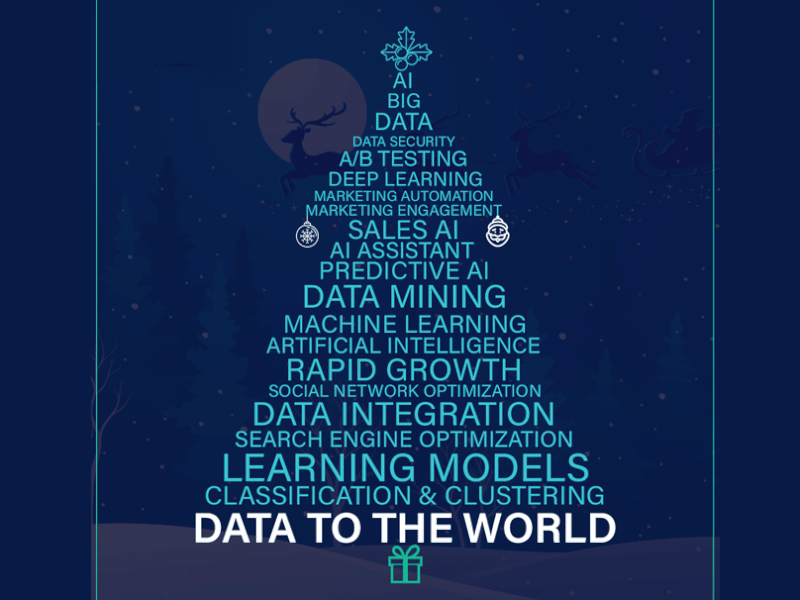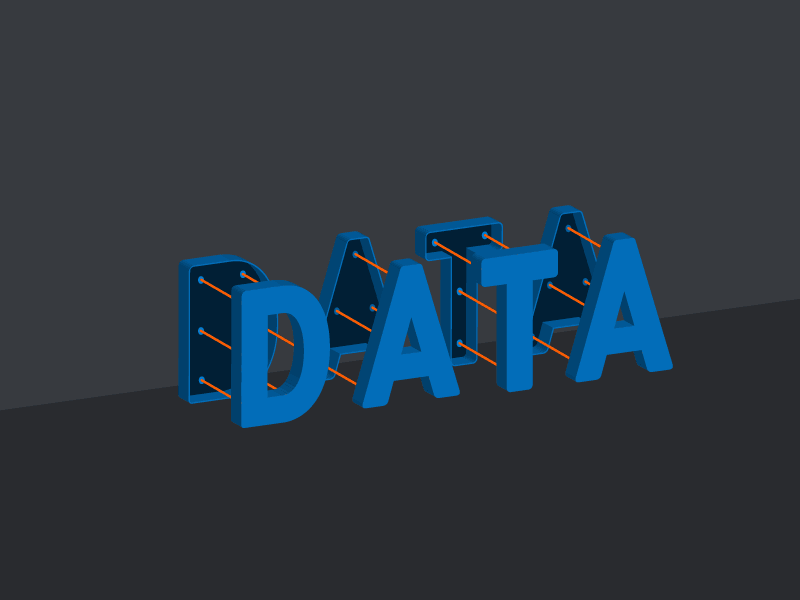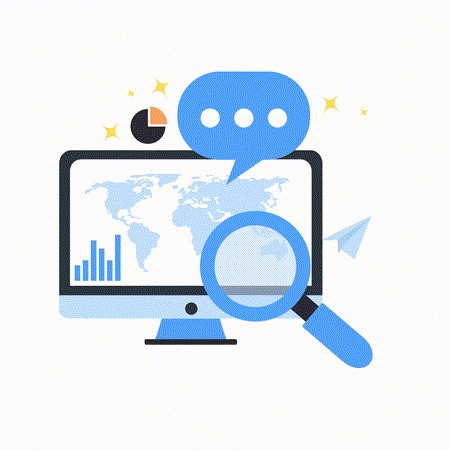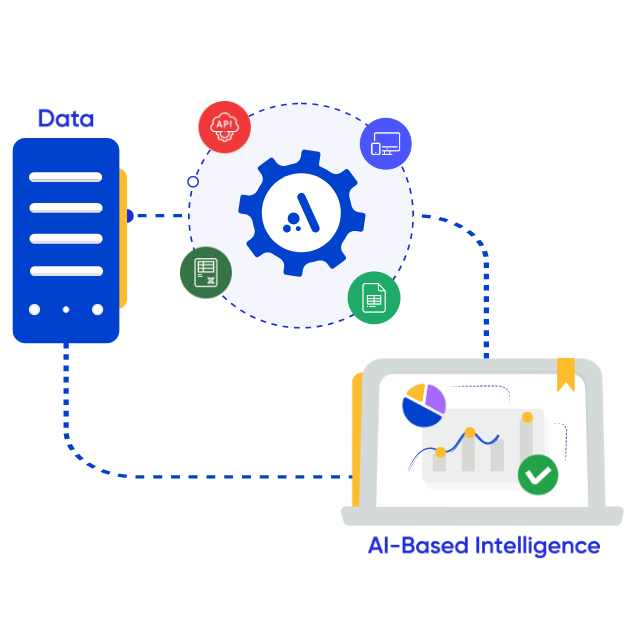https://24x7offshoring.com/navigating-the-seas-of-big-data-challenges-and/Ai data collection 24x7offshoring

Introduction:
In the ever-evolving landscape of technology and business, data collection has become the lifeblood of decision-making processes. From market research to healthcare, education to finance, the significance of data collection cannot be overstated. In this blog, we will embark on a journey to unravel the intricacies of data collection, exploring its various methods, challenges, and the transformative power it holds.
I. The Essence of Data Collection:
At its core, data collection is the systematic process of gathering and measuring information on variables of interest. This information, often in the form of raw facts or statistics, serves as the foundation for informed decision-making. Whether it’s understanding consumer behavior, improving product design, or predicting trends, the quality of collected data directly influences the success of any endeavor.
II. Methods of Data Collection:
- Surveys and Questionnaires: Surveys remain a ubiquitous method of data collection. Whether distributed on paper, conducted over the phone, or facilitated online, surveys allow researchers to gather responses from a diverse and often large population. Careful crafting of questions is crucial to ensure the accuracy and relevance of the collected data.
- Interviews: Face-to-face or virtual interviews provide a more in-depth understanding of respondents’ perspectives. This method is particularly useful when exploring complex topics that may require clarification or probing. However, interviews can be time-consuming and resource-intensive.
- Observation: In certain scenarios, direct observation proves invaluable. This method involves researchers witnessing and documenting behaviors, interactions, or events. While it offers a firsthand perspective, the challenge lies in maintaining objectivity and avoiding bias during the observation process.
- Social Media Monitoring: The digital age has ushered in new methods of data collection, with social media platforms serving as treasure troves of information. By analyzing user-generated content, sentiments, and trends, businesses can gain real-time insights into consumer opinions and preferences.
- Web Analytics: Website and app analytics tools track user interactions, providing businesses with valuable data on user behavior, demographics, and preferences. This method is instrumental in optimizing online platforms for enhanced user experience.

III. Challenges in Data Collection:
- Bias and Representation: Ensuring a diverse and representative sample is a perpetual challenge in data collection. Biases, whether conscious or unconscious, can skew results and compromise the validity of findings. Researchers must be vigilant in mitigating these biases to produce reliable data.
- Data Security and Privacy: With the increasing awareness of data privacy concerns, collecting and storing information responsibly is paramount. Striking a balance between extracting meaningful insights and respecting individual privacy is an ongoing challenge for data collectors.
- Incomplete or Inaccurate Data: Incomplete or inaccurate data can arise from various sources, including respondent errors, intentional misinformation, or technical glitches. Rigorous data validation processes and quality checks are essential to identify and rectify such issues.
- Technological Advancements: The rapid pace of technological advancements presents both opportunities and challenges in data collection. While cutting-edge tools and techniques enhance efficiency, staying abreast of these changes and ensuring compatibility with existing systems can be demanding.
IV. The Transformative Power of Data:

- Informed Decision-Making: Businesses and organizations leverage collected data to make informed decisions. From product development to marketing strategies, data-driven insights empower leaders to navigate the complexities of their respective industries.
- Predictive Analysis: Advanced analytics and machine learning enable predictive analysis, allowing businesses to anticipate trends, customer preferences, and potential challenges. This foresight is invaluable in staying ahead of the competition.
- Continuous Improvement: Through iterative cycles of data collection and analysis, organizations can identify areas for improvement. Whether it’s refining internal processes or enhancing customer experiences, the feedback loop facilitated by data is instrumental in achieving continuous improvement.
- Personalized Experiences: From e-commerce recommendations to personalized content, data-driven insights enable businesses to tailor their offerings to individual preferences. This personalization not only enhances customer satisfaction but also fosters brand loyalty.
Unveiling the Power of Data Collection: Unlocking the Secrets of Significance, Uses, and Benefits
Introduction:
In an era dominated by technological advancements and digital transformations, data has emerged as the driving force behind informed decision-making and innovation. The art and science of data collection play a pivotal role in shaping the landscapes of various industries. This blog will delve into the profound importance, diverse uses, and transformative benefits of data collection, shedding light on its indispensable role in our interconnected world.
I. The Crucial Importance of Data Collection:
- Foundation of Informed Decision-Making: At its core, data collection is the bedrock upon which informed decision-making stands. In businesses, governments, and various sectors, decisions ranging from product development to policy formulation are increasingly guided by data-driven insights. The availability of accurate and relevant data empowers decision-makers to navigate complexities with confidence, fostering organizational growth and success.
- Strategic Planning and Forecasting: Strategic planning hinges on a deep understanding of market dynamics, consumer behavior, and emerging trends. Data collection provides the necessary inputs for comprehensive market analysis, enabling organizations to forecast future scenarios and adapt their strategies accordingly. In a rapidly changing global landscape, the ability to anticipate trends is a strategic advantage that data collection bestows.
- Continuous Improvement Initiatives: Organizations committed to excellence recognize the iterative nature of improvement. Data collection facilitates the identification of areas for enhancement by providing insights into processes, workflows, and customer experiences. Through a continuous feedback loop, businesses can refine their strategies, products, and services to meet evolving demands and stay competitive.

II. The Versatile Uses of Data Collection which 24x7offshoring have:
- Market Research and Consumer Insights: One of the primary applications of data collection is in the realm of market research. Businesses leverage data to gain a nuanced understanding of consumer preferences, behaviors, and expectations. Through surveys, interviews, and social media monitoring, organizations gather valuable insights that inform product development, marketing strategies, and brand positioning.
- Healthcare and Medical Research: In the healthcare sector, data collection is a lifeline for research, diagnosis, and treatment. Electronic health records, patient surveys, and clinical trials generate vast amounts of data that contribute to medical breakthroughs, personalized treatment plans, and epidemiological studies. The intersection of healthcare and data collection holds immense potential for improving patient outcomes and advancing medical science.
- Educational Assessments and Personalized Learning: Educational institutions harness the power of data collection to assess student performance, track learning outcomes, and enhance teaching methodologies. Adaptive learning platforms use data analytics to tailor educational experiences, providing personalized content and interventions that cater to individual learning styles. The result is a more effective and engaging educational environment.
- Economic and Social Development: Governments and policymakers rely on data collection to drive economic and social development initiatives. Surveys on employment, poverty, and demographics help shape policies that address societal needs. Accurate and up-to-date data is essential for designing programs that foster inclusive growth, poverty alleviation, and the overall well-being of communities.dat
III. The Transformative Benefits of Data Collection:
- Innovation and Technological Advancements: Data collection fuels innovation by providing a wealth of information that inspires new ideas and solutions. In the tech industry, the analysis of user data guides the development of cutting-edge applications, software, and technologies. From artificial intelligence to the Internet of Things, data collection is instrumental in driving the next wave of technological advancements.
- Enhanced Customer Experiences: Businesses that prioritize data collection can create personalized and seamless customer experiences. By understanding customer preferences, analyzing feedback, and predicting trends, organizations can tailor their products and services to meet individual expectations. This customer-centric approach not only boosts satisfaction but also fosters brand loyalty in a competitive market.
- Data-Driven Decision-Making for Social Impact: Beyond business and technology, data collection plays a pivotal role in addressing social issues. Non-profit organizations and humanitarian agencies leverage data to identify areas in need, allocate resources effectively, and measure the impact of their interventions. From disaster response to public health initiatives, data-driven decision-making enhances the efficiency and effectiveness of social impact efforts.
- Efficiency and Cost Savings: Data collection contributes to operational efficiency and cost savings by identifying areas where processes can be streamlined and resources optimized. Whether it’s supply chain management, inventory control, or workforce optimization, data-driven insights help organizations minimize waste, reduce operational costs, and enhance overall efficiency.
IV. Overcoming Challenges and Ensuring Ethical Data Collection:
- Addressing Bias and Fair Representation: Recognizing and mitigating biases in data collection is essential to ensure fair representation. Researchers must employ diverse sampling methods, employ bias-checking mechanisms, and remain vigilant against unconscious biases. Ethical considerations should guide the entire data collection process to avoid perpetuating inequalities.
- Data Security and Privacy Measures: As data breaches and privacy concerns continue to make headlines, organizations must prioritize robust data security measures. Implementing encryption, access controls, and anonymization techniques safeguard sensitive information. Transparent communication with participants about data usage and obtaining explicit consent are crucial steps in maintaining trust and compliance with data protection regulations.
- Ensuring Data Accuracy and Quality: Rigorous validation processes, automated checks, and cross-referencing data from multiple sources are vital for ensuring accuracy and quality. Data cleansing and validation tools can help identify and rectify errors, ensuring that the insights derived from the data are reliable and trustworthy.
V. The Future of Data Collection with 24x7offshoring: Embracing Innovation and Ethical Practices

- Integration of Artificial Intelligence and Machine Learning: The future of data collection is intertwined with advancements in artificial intelligence (AI) and machine learning (ML). These technologies can automate data analysis, uncover patterns in vast datasets, and generate predictive insights. However, ethical considerations must guide the development and deployment of AI and ML to ensure unbiased and responsible data use.
- Blockchain Technology for Enhanced Security: Blockchain, known for its secure and decentralized nature, holds promise in revolutionizing data collection. By providing a tamper-proof and transparent ledger, blockchain can enhance data security, prevent unauthorized access, and instill trust in the data collection process. This is particularly crucial in industries where data integrity is paramount, such as finance and healthcare.
- Focus on Responsible Data Practices: As data collection capabilities evolve, the emphasis on responsible and ethical data practices becomes more pronounced. Organizations must prioritize transparency, accountability, and user consent. Adopting frameworks like Fair Information Practices and implementing privacy by design principles are essential to ensure that data collection serves the interests of individuals and society at large.
Conclusion:
In conclusion, the art and science with 24x7offshoring data collection are pivotal in the contemporary landscape, driving innovation, fostering informed decision-making, and shaping the future of various industries. As technology continues to advance, so too will the methodologies and tools for collecting and analyzing data. Navigating the challenges and harnessing the transformative power of data will undoubtedly be a defining factor in the success of businesses and organizations in the years to come.
READ MORE-
Bridging Cultures: Best Leading Language Translation Services in India
Navigating the Seas of Big Data: Challenges and Opportunities for Machine Learning
